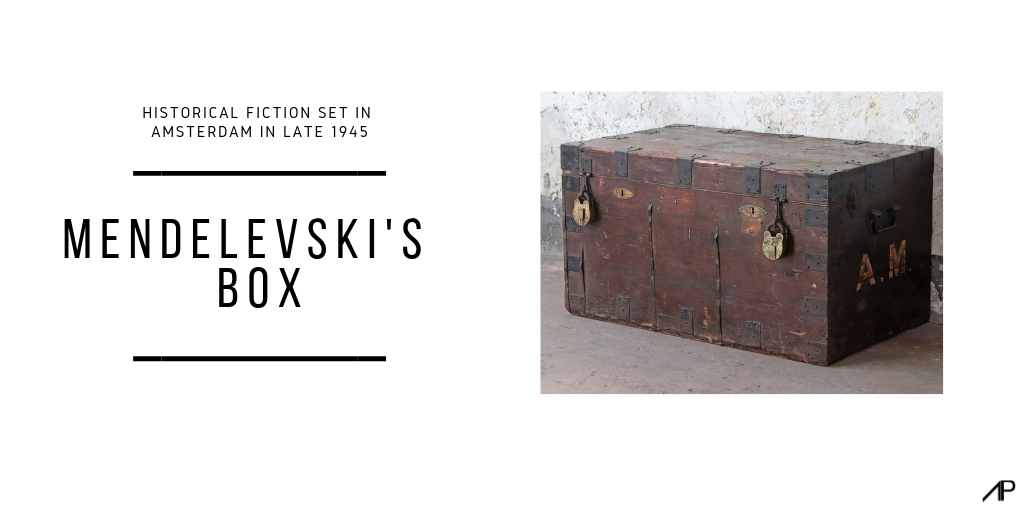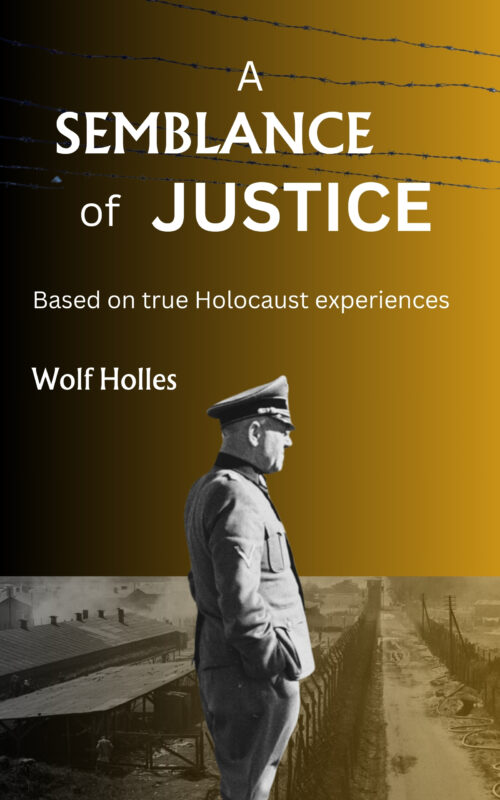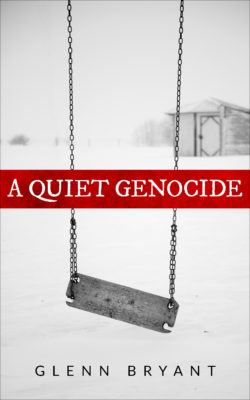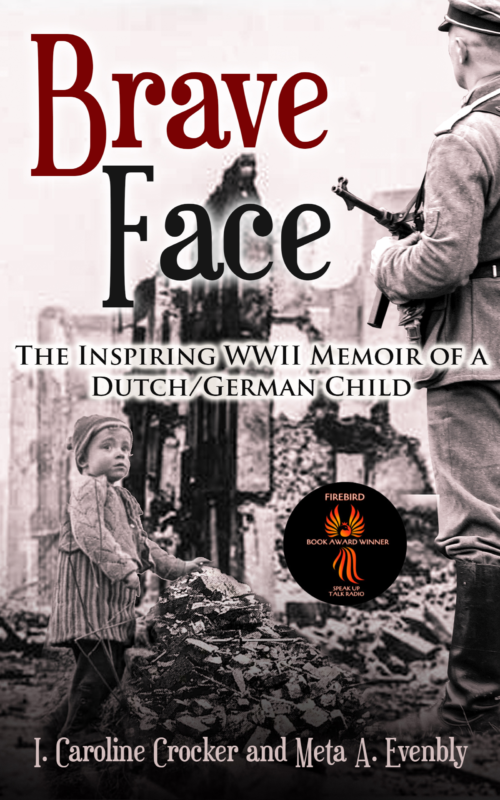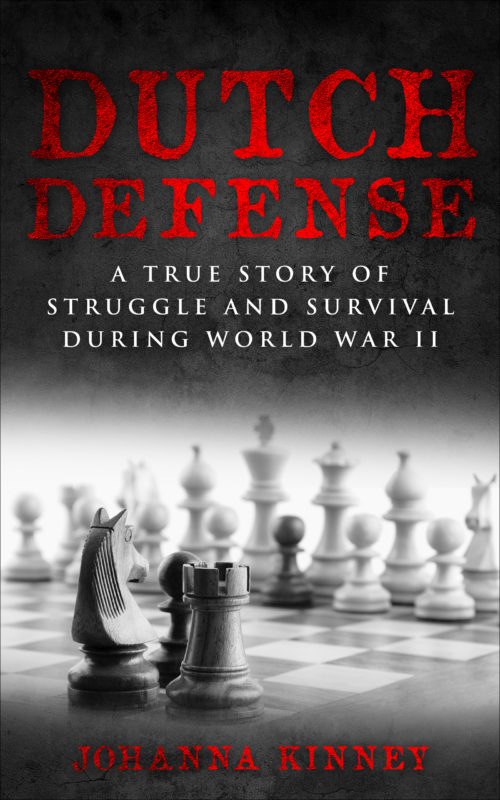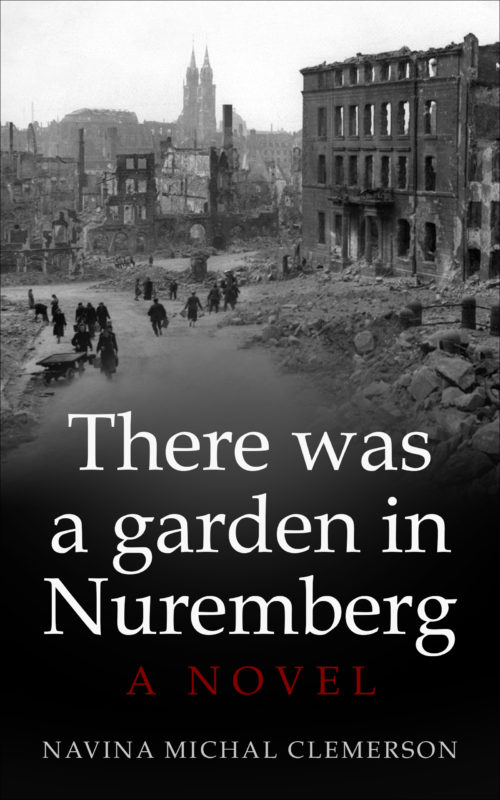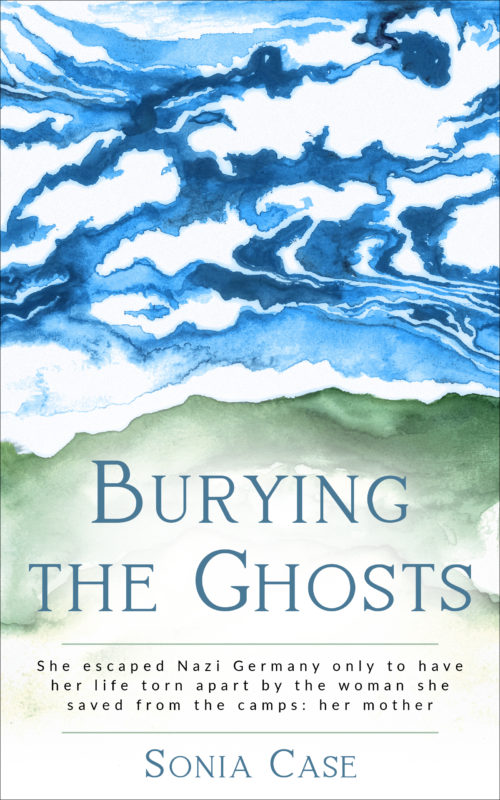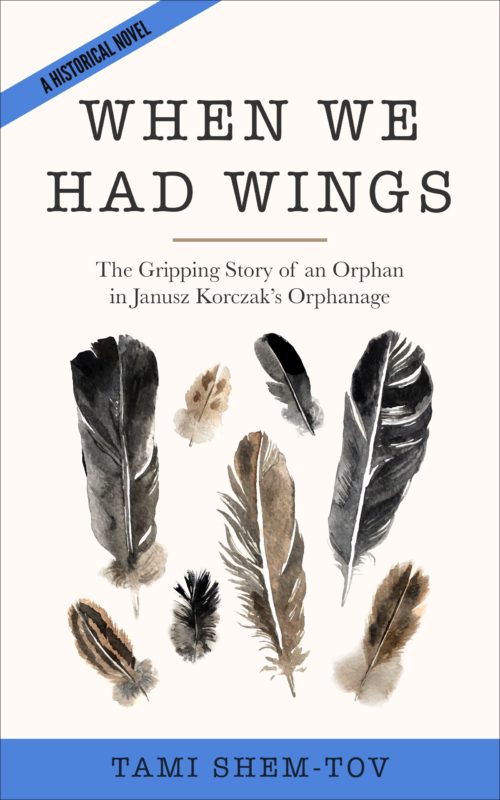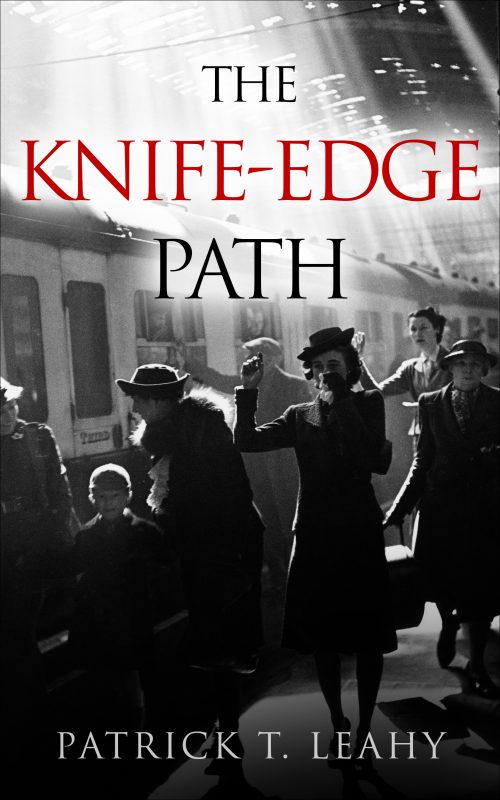Not being an Auschwitz survivor (Thank God!) nor a resident of Amsterdam in post-WWII, I honestly don’t know how realistic Mendelevski’s Box actually is. However, as a consumer of historical fiction, I can tell potential readers that Mendelevski’s Box seems right.
Though it is fiction, it was inspired by a suitcase (as opposed to a box) left behind in one of the hiding places for Jews when its owners were shipped to the camps. It is clear that Roger Swindells has done his homework.
The main characters have all experienced significant loss. Simon Mendelevski, the protagonist, lost his family, years of his life, real estate, his medical career, his identity as a practicing Jew. Grietje, who seems to be Simon’s benefactress due to some altruistic intention, has lost husband and sons. Maaike, one of Grietje’s hard-working lodgers, has lost family and a leg. At least, all three assume that they have lost everyone.
To be honest, I don’t know exactly what I was expecting. As with In a Field of Blue, a novel of post-WWII tragedy and adjustment set in Australia, what appeared to be something of a mystery forming a foundation for a very emotional story, Mendelevski’s Box appears early on to be more of a “romance novel” than “mystery.” I started reading Mendelevski’s Box to find out what was in the box, hidden at great cost and coming to Simon at great cost. Yet, I found myself caught up in a romantic triangle between Grietje, Simon, and Maaike. During the early section of the book, we become suspicious that Grietje has befriended for a motive beyond altruism. Indeed, there proves to be two motivations, both telegraphed early in the book.
Mendelevski’s Box is more than a mystery; it is a novel of creative survival. Simon is a naïve, idealistic, innocent, virgin. He is obsessed with finding the person who betrayed his family. He uncovers tales of collaborators and black marketeers. It is a time where the poorer Amsterdam residents often hunted for wood to burn in abandoned houses. It is a time when returning survivors of the camps found their former houses occupied by Dutch families. Worse, at any point they tried to reclaim those houses, even the post-war government was more concerned about collecting back-taxes from the Jews than helping them get their rightful property back.
Simon clearly needs a friendly native guide to lead him through the twisting circumstances and complicated rituals of regaining identity, establishing a bank account, attempting to recover his property without immediately having it confiscated as black market profit, and, if possible, finding the one who betrayed his family. Jos, the tavern owner who originally hired Maaike and now, takes a chance on Simon, proves to be Simon’s mediator in the shadow world of murky dealings and with people who may or may not be trusted. And Jos proves to be a vital lynchpin in Simon’s reintegration process.
Mendelevski’s Box hit me harder emotionally than In a Field of Blue. Swindell’s foreward notes that Jews shipped to the camps from the Netherlands had the lowest survival rate of any of the Jewish populations in Europe. Then, to see the shabby way they were treated upon their attempted re-entry into “normal” (or, at least, “normalizing”) society was incredibly sad. Yet, Mendelevski’s Box is about facing up to the odds which stand against one. The novel is about guilt. The novel is about the roots of place and family. And, fortunately for the reader, the novel contains “some” wins and “some” aspects about which it is hard to feel good.
At first, I thought Mendelevski’s Box seemed like it was going to have a plodding pace. Soon, I discovered that if things moved any faster, I wouldn’t be able to take in the full atmosphere and absorb the significant risk involved in portions of the story. Since I can’t think of one thing I would change in the novel (yes, a rarity indeed for such an opinionated individual), I must give it the full five (5) stars.
– Johnny L Wilson
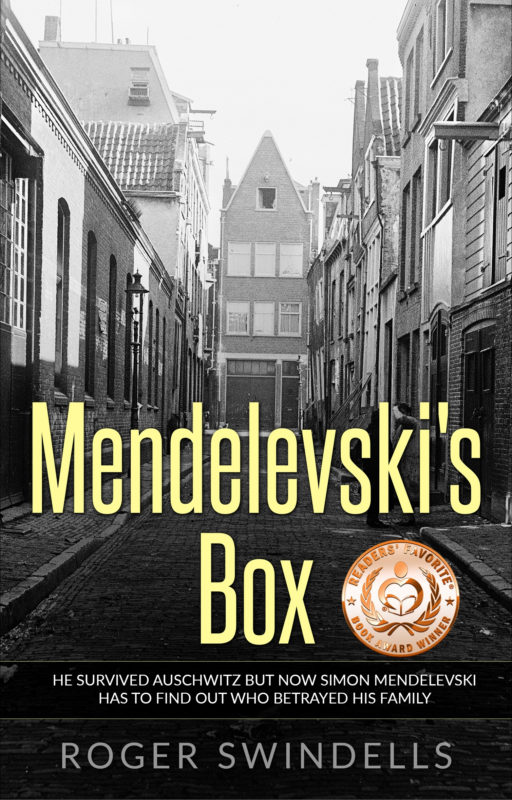
 Mendelevski’s Box by Roger Swindells in the News
Mendelevski’s Box by Roger Swindells in the News

